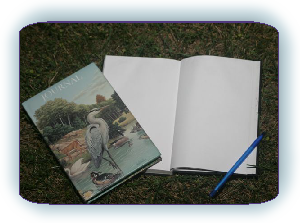Writing to Heal
by Anais Salibian
published in Rochester Woman Magazine, Sept./Oct. 2008
“Wow, I'm seeing my life in a whole new way!”
“I can't believe how good I feel. I was so stressed when I came in; now my shoulders don't hurt.”
These comments came from people after the first night of a memoir class I recently taught. My students were discovering something writers have long known: there’s something healing about writing. And I was discovering that the very skills that go into the writer’s craft are the ones that promote physical, emotional and mental health.
I was amazed when I read about the biological benefits of writing a certain way. Dr. James W. Pennebaker, Professor of Psychology at the University of Texas, is the leader of over twenty years of research that shows the health benefits of “expressive writing.”
Writing is measurably good for your health if your topic is something that matters deeply to you that you have not yet resolved. Pennebaker told the subjects in his experiments to write for twenty minutes for four days. He divided them into four groups: Group A was instructed to tell about the worst thing that ever happened to them and what they thought and felt about it. Group B wrote only what happened. Group C wrote only their feelings. Group D wrote about superficial topics like their weekend plans.
Consistently, the writers in Group A got healthier. The list of benefits is long:
- Immune function is heightened. Pennebaker drew blood before and after the experiments and found an increase in T-lymphocytes, not only immediately after, but six weeks later. In a study with AIDS patients, their white blood cell counts went up as well.
- Asthma patients show better lung function.
- Arthritis sufferers have “lower pain and disease severity.”
- Cancer patients have less sleep disturbance. In a recent study by Dr. M. Soledad Capeda of Tufts-New England Medical Center in Boston, cancer patients who wrote openly about their emotions showed less pain and greater well-being.
- Stress indicators (muscle tension, perspiration, heart rate, blood pressure) go down when writing (and talking) about traumas.
Although during the week of the study, people might feel sad or disturbed, they overwhelmingly report better moods in the long run. They feel happier, socialize and smile more, experience much less anxiety and depression.
Grades and job performance improve. Even getting a job is easier. Eight months after a layoff, 52% of the expressive writing group had jobs, vs. 20% of the control group.
Writing clears the mind. It helps resolve traumas that interfere with focus and attention. It helps you acquire and remember new information and solve problems. (Don't let the word “trauma” mislead you. We all experience it at some time in our lives: not just violence but accidents, injuries, illness, grief and loss, overwhelming stress.)
Part of my job as a writing instructor is to teach how a story is constructed, how to choose and organize random events into a meaningful narrative. This very act is what improves health. According to Pennebaker, “participants who began with a clear, coherent, well-organized story rarely evidenced any health improvement.”
For years, I have also worked with survivors of trauma in my private practice as a therapeutic bodyworker. I’m familiar with the symptoms of Post Traumatic Stress Disorder. After learning about the research on writing, I did my own experiments. I gave writing assignments to some of my clients . How did it go?
“It’s not such a big monster any more.”
“I can sleep at night. I can do things I couldn’t do before.”
As PET scan studies show, writing changes how traumatic memories are encoded in the brain.
Most of the research has been done on narrative writing, but journaling and poetry can be just as effective. Kathleen Adams has developed a whole journaling-to-heal process for her clients, and Michael Fox has written Poetic Medicine. The poet Gregory Orr describes the same benefit that Dr. Pennebaker observed with storytelling. Orr writes, “Instead of yourself being overwhelmed by disorder, we will have in the poem...your self as poet mastering what threatened to master you.”
In my Writing to Heal classes and workshops, I’ve seen the positive effect of combining all three approaches. I offer writing exercises in a sequence designed to maximize clarity, depth and insight. Writing is effective even if no one reads your writing, but I believe that voluntary sharing furthers the healing process. I’ve witnessed how people inspire and encourage each other through illness, injury, and grief and loss. They also discover talents they didn’t know they had: words that heal. One class member recently offered us this gem: “I come from a desert of secrets, some prickly cactus waiting only to hurt, some stunning flowers waiting only for rain.” The writing group is rain; she's blooming.
